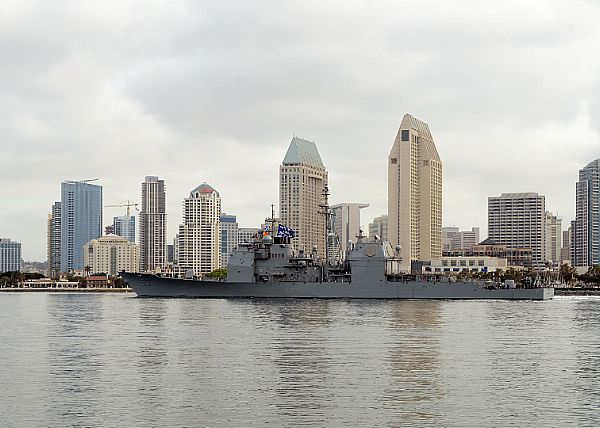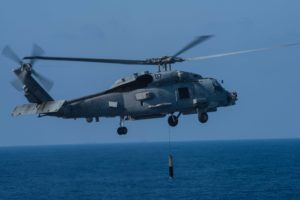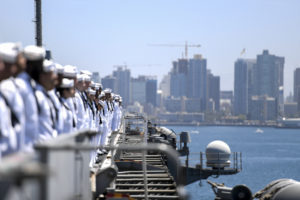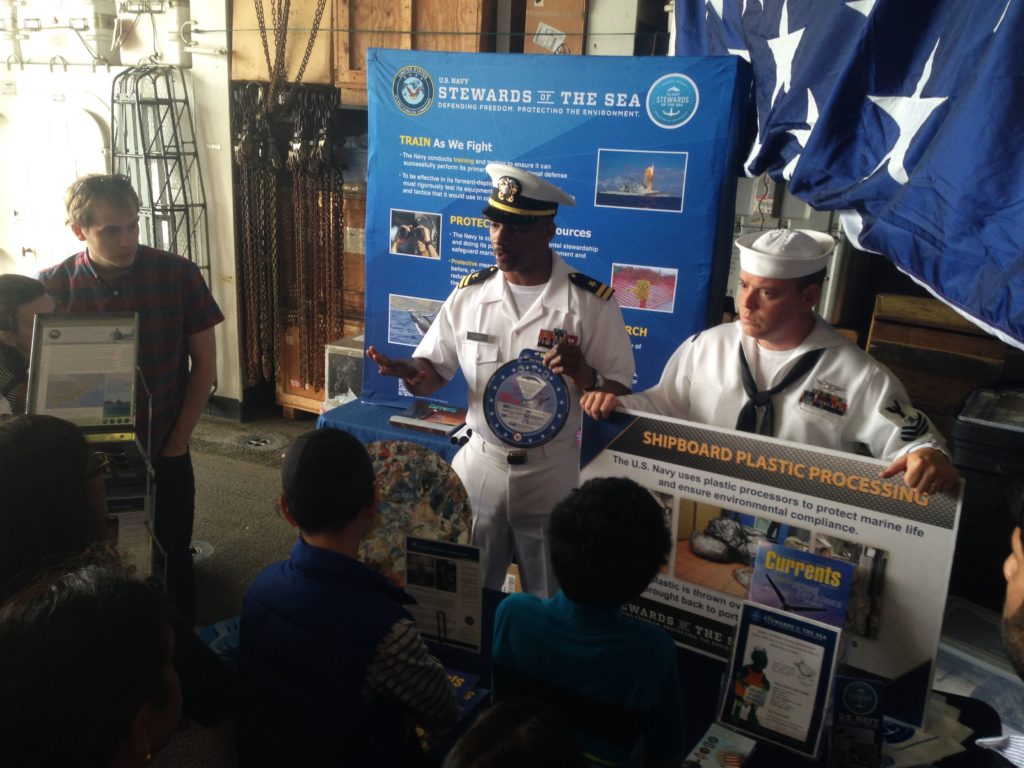

Local Coronado residents often see ships sailing out the bay and aircraft flying offshore to conduct exercises and proficiency training. These Navy ships and aircraft are required to do the majority of their training in designated areas off the coast of Southern California as they prepare to deploy around the world, ensuring they are ready for any mission or task that could be required. As a measure to ensure the Navy is following environmental guidelines and not causing harm to the environment, the Navy is required to meet with the California Coastal Commission concerning their future training plans.
“The Navy appeared before the California Coastal Commission (CCC) June 6, to discuss a Consistency Determination for future Navy training and testing in the Pacific Ocean off the Southern California coast.

The activities proposed by the Navy are a continuation of the same types of activities that have been conducted for decades with some minor adjustments, including the reduction of the amount of sonar hours permitted,” said Lt. Tim Gorman, U.S. Pacific Fleet spokesperson.
The California Coastal Commission (CCC) voted unanimously to reject the Navy’s proposal. According to the CCC website, “The Commission is committed to protecting and enhancing California’s coast and ocean for present and future generations. It does so through careful planning and regulation of environmentally sustainable development, rigorous use of science, strong public participation, education and effective intergovernmental coordination.” The National Marine Fisheries Service permit to the Navy for this type of training is approved through Dec. 25, so the Navy and CCC have 6 months to come to an agreement. While the Navy has proposed continuing and expanding environment mitigations, the CCC requested additional mitigations be put in place for future training.
Gorman said, “the Navy will continue to work with the CCC to attempt to find common ground. The Navy plays a vital role in defending the nation. The waters off of Southern California are a critical training area for U.S. Pacific Fleet ships. The Navy has extensive mitigation measures to minimize impacts while supporting training and testing requirements. The Navy complies with all federal laws, including the Coastal Zone Management Act, Marine Mammal Protection Act, Endangered Species Act and National Environmental Policy Act.”

While the Navy has invested a great deal of time, training and money into its environmental stewardship programs, some environmental groups continue to try and halt Navy training and operations.
The Natural Resources Defense Council (NRDC), an international nonprofit environmental organization working to protect the environment, testified at the CCC and issued a press release in advance of the meeting stating, “Over the next five years, the Navy intends to detonate tens of thousands of underwater explosives, and run tens of thousands of hours of high-intensity sonar exercises, off Southern California, where much of the Pacific Fleet is homeported. These activities may be necessary for training; for whales and other marine mammals in the region, however, the environmental consequences are profound.”
Questions about the motives behind NRDC positions, and concerns about NRDC’s ties to China have recently been raised by members of Congress. GOP Reps. Rob Bishop of Utah and Bruce Westerman of Arkansas wrote the NRDC earlier this week saying, “The Committee is concerned about the NRDC’s role in aiding China’s perception management efforts with respect to pollution control and its international standing on environmental issues in ways that may be detrimental to the United States. The NRDC’s relationship with China has many of the criteria identified by U.S. intelligence agencies and law enforcement as putting an entity at risk of being influenced or coerced by foreign interests.” According to a recent RollCall article, “The NRDC has sued the U.S. government in the past to curtail naval exercises and testing in the Pacific Ocean, but lawmakers said the NRDC has not protested similar actions by China, and the group has been silent on China’s creation of artificial islands in the South China Sea.”




